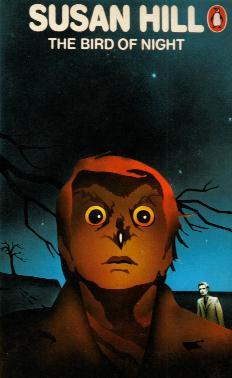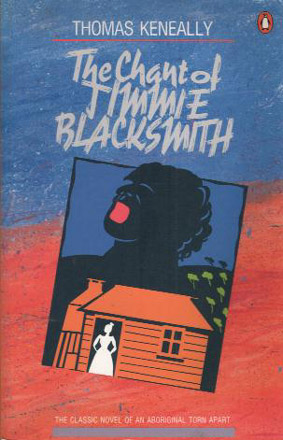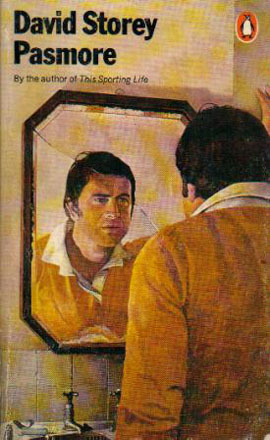
John Berger
The following novels constitute the shortlist for the 1972 Booker Prize:
Notable Omissions from the 1972 Shortlist

|
G. John Berger |
Dustjacket synopsis:
"In this luminous novel - winner of Britain's prestigious Booker Prize - John Berger relates
the story of "G.", a young man forging an energetic sexual career in Europe during the early
years of this century. With profound compassion, Berger explores the hearts and minds of
both men and women, and what happens during sex, to reveal the conditions of Don Juan's success:
his essential loneliness, the quiet culmination in each of his sexual experiences of all those
that precede it, the tenderness that infuses even the briefest of his encounters, and the way
women experience their own extraordinariness through their moments with him. All of this Berger
sets against the turbulent backdrop of Garibaldi and the failed revolution of Milanese
workers in 1989, the Boer War, and the first flight across the Alps, making G. a
brilliant novel about the search for intimacy in history's private moments."
Quotes:
"A fine, humane and challenging book." - New Republic
First Paragraph:
The father of the principal protagonist of this book was called Umberto. He was a merchant from the city of Livorno and he dealt in candied fruit. He was a short fat man who looked shorter because of the largeness of his head. To women not unduly frightened of gossip and public opinion, the unusual size of Umberto's head may have been attractive. It suggested obstinacy, weight and passion. Most of the women of the merchant class in Livorno or Pisa were timid. Consequently he had gained among them the reputation of being monstrous. He was called 'La Bestia': a word nominally justified by his rudeness, his leering and his arrogance, but nevertheless retaining in their usage just sufficient of its rawer meaning to both feed and suppress the feelings of attraction they unconsciously felt. It was significant in this respect that they never called him 'La Bestia' in front of their husbands. The nickname was reserved for purely feminine conversations during the afternoon.
From the Vintage International paperback edition, 1991.

|
The Bird of Night Susan Hill |
Dustjacket synopsis:
"Francis Croft, the greates poet of his age, was mad. His world was a nightmare of internal furies and haunting poetic
vision. Harvey Lawson watched and protected him unti his final suicide. From his solitary old age Harvey writes this
brief account of their twenty years together and then burns all the papers to shut out an inquisitive world.
"The tautness and control that characterize Susan Hill's work are abundantly evident in The Bird of Night as she magnificently handles the heights and depths, the splendours and miseries of madness and friendship."
First Paragraph:
Once, during the summer we spent at Kerneham, Francis locked himself in the church for a whole night. I found him there, at five o'clock the next morning, huddled up beneath the pulpit. It was cold. He could not feel safe anywhere else, he said, and then he began to weep, as so often happened, and shouted at me through his weeping, to understand the truth, that he deserved to be locked up, why would I not admit that and see to it, why had I driven him to do it for himself?
From the Penguin paperback edition, 1976.

|
The Chant of Jimmie Blacksmith Thomas Keneally |
Dustjacket synopsis:
"Jimmie Blacksmith is the son of an Aboriginal
mother and a white father. A missionary shows him what it means to be white -
already he is only too aware of what it means to be black. Exploited by his
white employers and betrayed by his white wife Jimmie cannot take any more. He
must find a way to express his rage.
"The Chant of Jimmie Blacksmith is based on an actual incident that occurred at the turn of the century. Set against the background of a turbulent Australian history, Thomas Keneally records with clarity the chant of one troubled man."
Quotes:
"Blends history, pyschological insight and epic adventure...it echoes in the head long after it
has been put down" - The New York Times Book Review
First Paragraph:
In June of 1900 Jimmie Blacksmith's maternal uncle Tabidgi - Jackie Smolders to the white world - was disturbed to get news that Jimmie had married a white girl in the Methodist church at Wallah.
Therefore he set out with Jimmie's initiation tooth to walk a hundred miles to Wallah. The tooth would be a remonstration and lay a tribal claim on Jimmie. For Tabidgi Jackie Smolders was full-blooded and of the Tullam section of the Mungindi tribe. To his mind people should continue to wed according to tribal patterns.
Which was: that Tullam should marry Mungara, Mungara should wed Garri, Garri should wed Wibbera, Wibbera take Tullam's women. But here was Jimmie, a Tullam, married in church to a white girl.
Jackie felt distressed, a spiritual unease over Jimmie Blacksmith's wedding. These tribal arrangements should still be made, Tabidgi Jackie Smolders thought. The elders kept the tribal pattern in their heads and could arrange a tribal wedding even if the Tullam buck was on a mission station eighty miles, two hundred miles, from Mungara woman.
From the Penguin paperback edition, 1989.
You can read full details of this and other novels by Tom Keneally on this website page.

|
Pasmore David Storey |
Dustjacket synopsis:
"David Storey first won critical acclaim with his novels This Sporting Life, Flight into Camden and
Radcliffe. Since then he has had five successful plays produced in London. The Restoration of Arnold
Middleton, In Celebration, The Contractor, The Changing Room, and Home of which
Home is perhaps the most outstanding testimony to his briliant use of language and ability to convey the
suffering of humanity.
"In Pasmore he depicts a young univeristy lecturer, in the grip of a nervous breakdown, struggling to resolve a disintegrating marriage in a chaotic and meaningless world.
Quotes:
"Swift, clean and painful...as good as anything he has done" - Michael Ratcliffe, The Times
First Paragraph:
He woke to find the room full of sunlight.
A dull pain throbbed between his eyes. His face was covered with sweat.
When he turned on his side he saw that Kay was still asleep, her face sunk down in the pillows, almost hidden.
The children, presumably, had been in to open the curtains. He could hear them crashing about in their room at the front of the house. The alarm hadn't rung yet. It was almost seven o'clock.
Notable Omissions from the Shortlist:
Greenvoe, George Mackay Brown
This page and its contents are copyright © 2002-06 by Perry Middlemiss, Melbourne, Victoria, Australia.
Last modified: January 31, 2006.